Only 2 square kilometres in size, the “Robinson Crusoe” paradise of Gili Meno is the smallest of the three Gili Islands off the coast of Lombok in Indonesia.
It was here, in February 2015, that Trash Hero Gili Meno was founded. Fringed by an idyllic white sand beach around its entire perimeter, the island was under attack on all sides from floating ocean plastic. And, as is common on the archipelago, there was no waste management infrastructure, and no space for landfill, so islanders used open burning as the means of disposing of their trash.
Within a couple of years, the Trash Hero Gili Meno team had motivated their fellow residents to find solutions to these problems. Every business on the island now supports the Sunday cleanups, which are also attended by most of the island’s children.
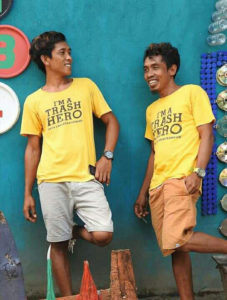 The growing passion for zero waste among chapter leaders Sulman Alfarizi Ali and Samsul “Adi” Hadi [pictured, left] eventually lead them to give up their full time jobs in tourism earlier this year and found the Brotherhood Recycling and Education Centre. Now they work on improving their community’s waste management, focusing on reduction, reuse and recycling.
The growing passion for zero waste among chapter leaders Sulman Alfarizi Ali and Samsul “Adi” Hadi [pictured, left] eventually lead them to give up their full time jobs in tourism earlier this year and found the Brotherhood Recycling and Education Centre. Now they work on improving their community’s waste management, focusing on reduction, reuse and recycling.
The entire Brotherhood Centre is made from salvaged waste, from the bottle walls, to can and plastic bag decorations. Workshops are held to teach people recycling skills, such as how to turn empty bottles into drinking glasses by hand, using low-tech tools; any broken glass is crushed and turned into building material.
Bamboo straws and cleaning brushes are produced from locally grown plants and sold to local bars to replace plastic.
Their ecobrick initiative offers islanders rice in exchange for plastic bottles filled with non-recyclable trash, which provides an incentive not to burn the toxic material. The bottles are then used in construction projects around the community.
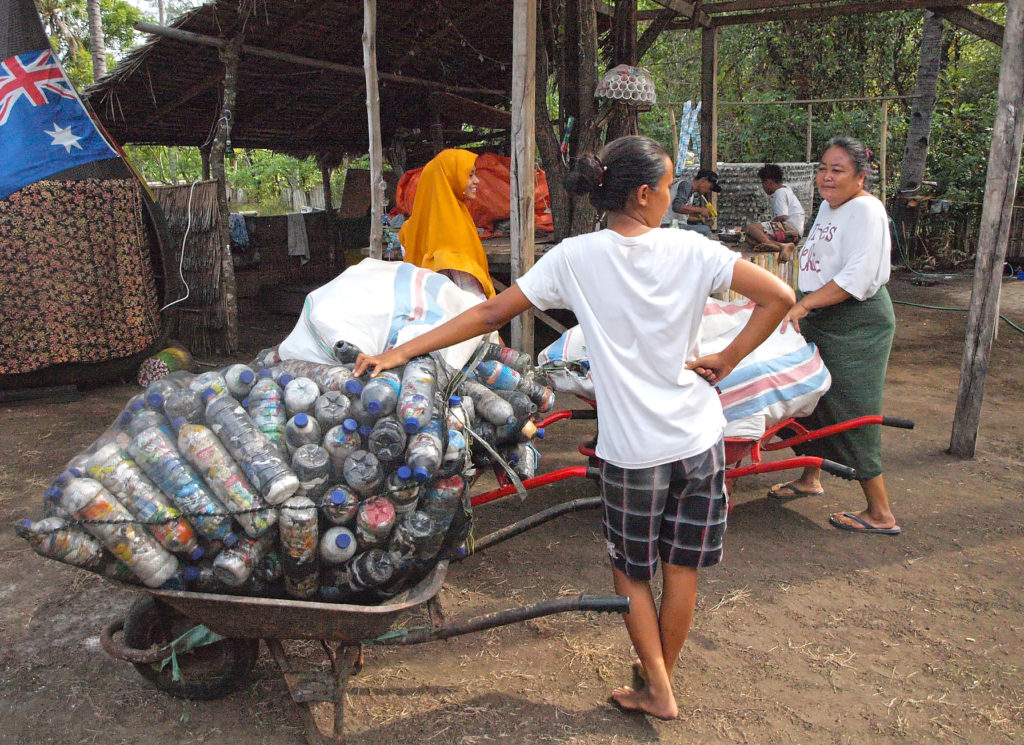
“I really want to look after my island,” says Sulman. “I felt that on Gili Meno sometimes we just look at money only. It was sad for me to see that everywhere there was trash and plastic, and people burning it. I think soon nobody is going to visit any more and then the money is gone… so better we clean and take care and then everyone will want to come to this beautiful place. We make it sustainable.
“Trash Hero does not give us any money but we get a lot of training and support from them. And things like t-shirts, books and bottles help to promote our activities and motivate the people to join us.”
In August 2018, a series of devastating earthquakes hit Indonesia, with the 7.0 magnitude tremor on the evening of Sunday 5 August ravaging the Gili Islands and northern Lombok. The death toll from these events, including the aftershocks that continued for weeks after, stands at 563; and more than 400,000 people lost their homes in the disaster.
In Gili Meno, around 75% of the infrastructure was destroyed.
“The earthquake had a huge detrimental effect on the island, not only in terms of buildings, but people lost their livelihoods because there was no tourism. But the local community did not for one second give up. In order to get the tourists back, and in order to maintain a sense of routine for their kids and their lives, they decided to keep the island clean – to make sure not only the tourists could enjoy it, but the local community as well,” explains Sarah Kursheed, a dive instructor based on the island.
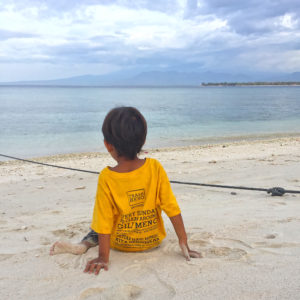 So the Trash Hero Sunday cleanups went on and became a focus for the community rebuilding process. Life slowly got back to normal.
So the Trash Hero Sunday cleanups went on and became a focus for the community rebuilding process. Life slowly got back to normal.
The community even participated in World Cleanup Day on 15 September 2018, with the support of Trash Hero, though many were still living in makeshift camps.
“Since after the earthquake it is a little hard for us,” admits Adi. “We have to start from the beginning, but slowly we will grow again and do more.”
Watch how Trash Hero Gili Meno is regenerating their island in the aftermath of the Indonesian earthquakes:
Trash Hero World co-founder, Roman Peter, visited the island in November 2018 and was amazed at the spirit he found. “It’s inspirational to me how they have got through this disaster together. It was especially moving to see how the Trash Hero activities gave the kids some much needed structure after the trauma of losing their homes. The focus on reducing and reusing waste is stronger than ever and we will do everything we can to support them in this.”
See for yourself in the resulting short movie, above: filmed entirely on site in November, mere months after the earthquake, the strength and motivation of Trash Hero Gili Meno is an inspiration to us all.
Hopefully, it is also clear from the video that the island is once again open for tourists, and is as safe and beautiful as ever – go visit and be amazed!

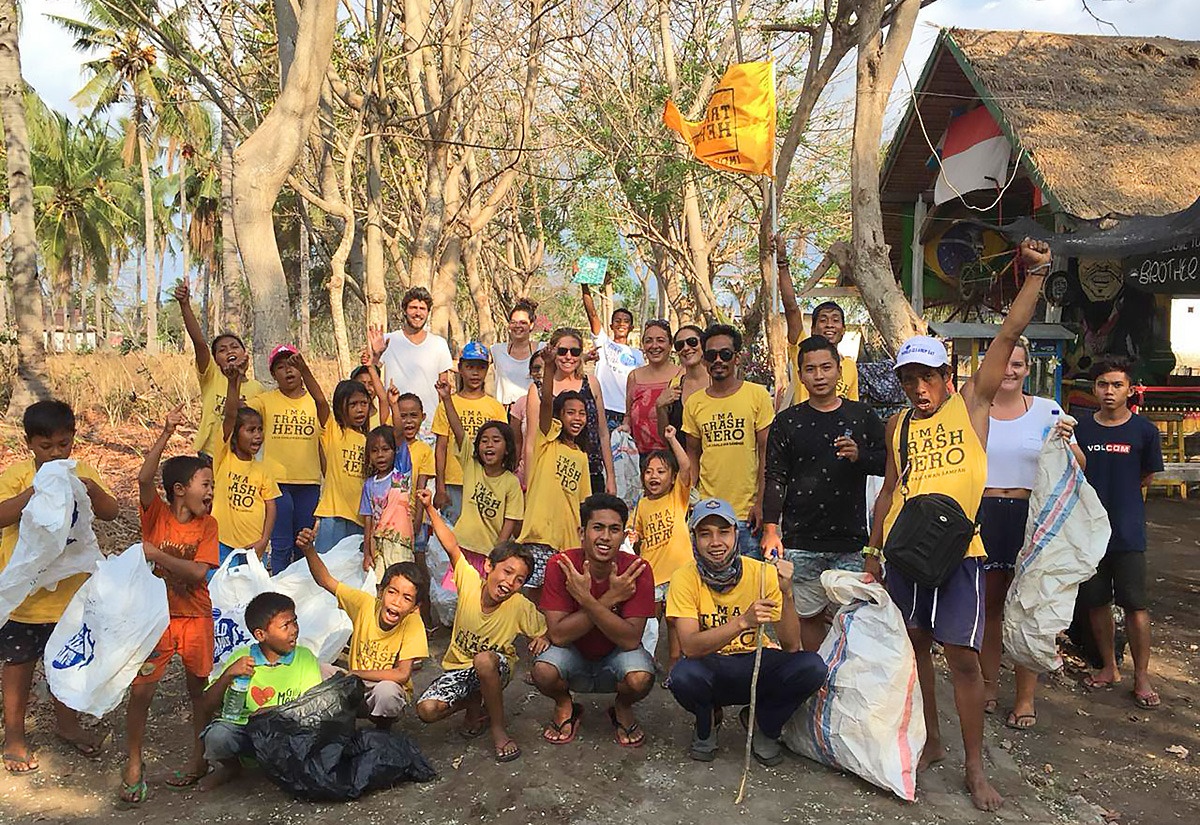
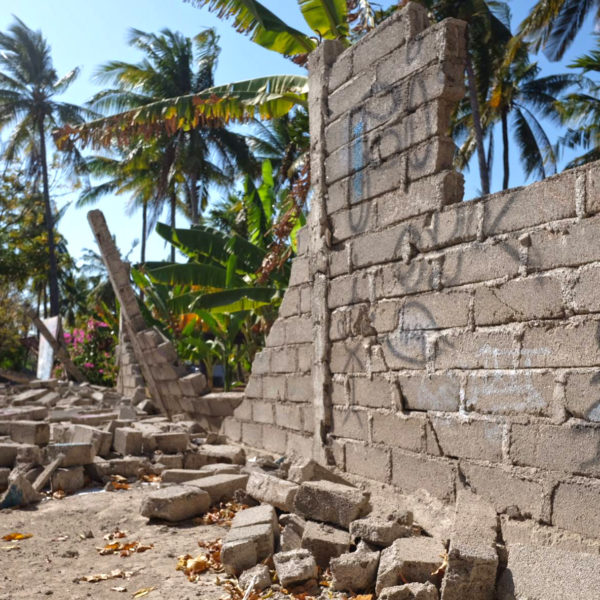
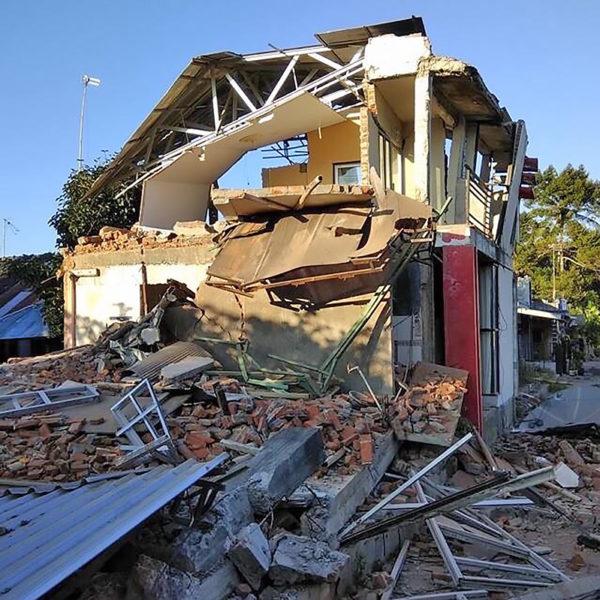
Join the conversation